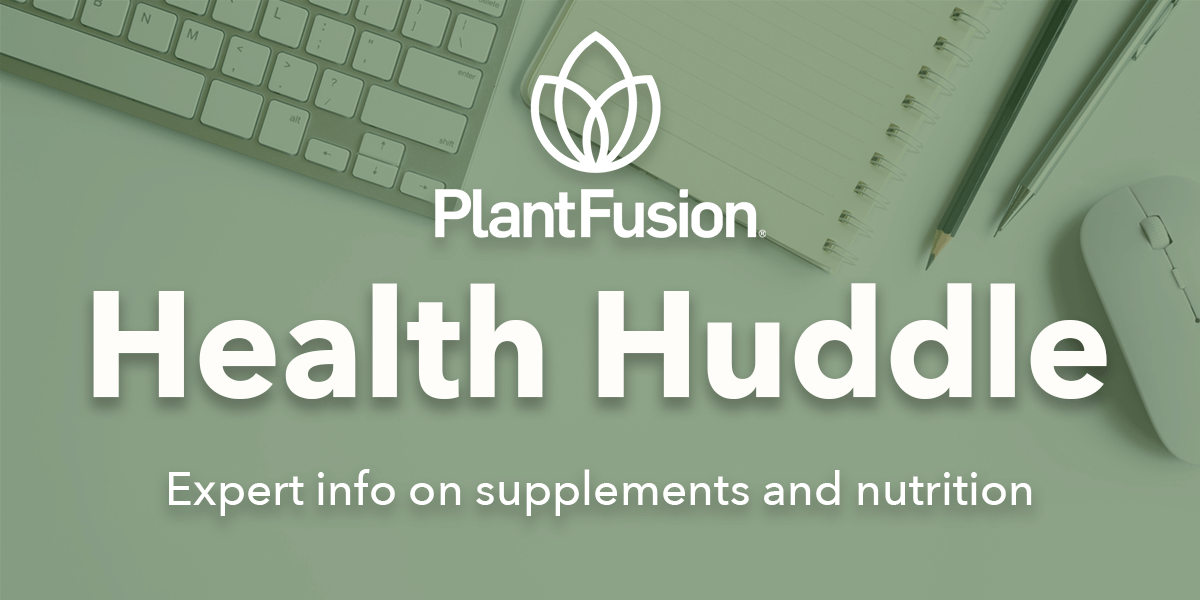We all feel stressed from time to time, and now more than ever. Stress is one of the most insidious things working against us living our “best life.” Unfortunately, you can’t completely avoid stress, so the key is knowing how to manage it.
You probably recognize the two most common types of stress:
- Acute stress is the result of a big event or sudden threat that occurs over a limited time frame.
- Chronic stress is the kind that we are exposed to over a long period of time. This can be stress from lifestyle factors like pollution, illness, sleep deprivation, diet, exercise or lack of exercise, finances...
Our modern lifestyle is riddled with daily stressors that have become so ubiquitous that sometimes we don’t even notice them. These chronic stressors include everything from commute times, annoying co-workers, poor dietary choices and pollutants. Small daily stressors can subtly build up, having both short and long-term health consequences. Chronic stress is a serious epidemic which affects all gender, age and socioeconomic groups. Unlike acute stress, the body is not really designed to optimally deal with long term, unremitting stress. So what does chronic stress look like? Stress doesn’t always appear as a giant monster that chews on your nail beds and tears out your hair. In fact, many people don’t even realize they are stressed, let alone recognize the real toll it takes on their quality of life.
If stress doesn’t cause illness, studies show that it makes almost any condition worse. Some of the symptoms of long term chronic stress that may go unrecognized include: blood sugar disruption, weight gain, difficulty sleeping, headaches, fatigue, and gastrointestinal issues (bloating, cramps, diarrhea, etc.) (Crowley 2020; Wang 2019; Martin 2016). It can also manifest itself in behavioral and emotional changes, such as: irritability, nervousness, lowered coping skills or feelings of helplessness. Separately, these conditions may seem insignificant and are often ignored, but allowing these symptoms to become your norm can be detrimental to your overall health.
Hypothalamic-pituitary-adrenal (HPA) axis, located in the brain, is central to the stress response system and regulates the release of cortisol, also known as the “stress hormone.” The release of cortisol acts as an internal alarm that prepares the body to deal with stress. Short lived stress can be a good thing, even a lifesaver. It causes the body to be more active and focused, helping you overcome the various threats or challenges. However, long term stress diverts resources away from other important functions in the body, which help repair damage, eliminate toxins, optimize metabolism and fight of disease.
Stress may be a part of everyday life, but it doesn’t have to rule your life. Here are 7 tips you can start today that have been clinically proven to help you be more resilient to stress:
-
Take pleasure in nature. Enjoying the great outdoors provides two benefits. First, data shows that people who appreciate the beauty around them are more able to relax and better able to maintain their mood. Second, taking in all that sunshine will raise your vitamin D levels. Vitamin D plays an important role in mood modulation and has been known to lower stress and anxiety (Aghajafari, 2018). There is also a mountain of studies that support the benefits of the natural environment on mental health (Ewert, 2018).
-
Find ways to sneak in some exercise. Whether you enjoy walking, running, swimming, dancing, kickboxing, or yoga, exercise is one of the most important things you can do to combat stress. Studies have shown that regular exercise lowers cortisol levels, improves sleep quality, and can even build self-confidence (Stubbs, 2017; Crowley, 2020). Yoga is not just good for core strength, but more importantly, its mental component improves calm, increases focus and promotes self-awareness. As an added perk, this is an exercise that encourages you to be kind to yourself and your body. It is also a fun (and soothing) activity to do with your kids (Venkatesh, 2020)!
-
Keep a gratitude journal. Writing down what you’re grateful for may help lower stress and anxiety by allowing you to redirect your thoughts and emotions to something more positive. Many studies support the therapeutic benefits of recording your feelings (Smyth, 2018).
-
Connect with friends and family. Finding someone you trust and who can both validate your feelings and provide perspective is an important part of staying mentally healthy. Studies show that both connecting and helping others can help be a release valve during stressful times. It is important to share your feelings and connect with people who understand you and make you feel safe (Harandi, 2017).
-
Smile and Laugh. Laughing is a great way to reduce stress. Our facial expressions are interconnected to our brains and emotions. Basically, we can actually fake it till we make it. When we smile, even if we have to force it a bit, it sends signals to our brain that can help lift our mood and inspire a reciprocal smile in another person. Tickling our sense of humor actually stimulates multiple physiological systems that decrease levels of stress hormones, such as cortisol and epinephrine, and increase activity in the reward centers of the brain (Savage, 2017).
- Consider supplements:
- Lemon balm– Lemon balm has shown to promote calmness and improve memory in adults (Javid, 2018).
- Rhodiola - This artic root has been long used as an adaptogen, meaning it can normalize body function and strengthen the systems compromised by stress (Lekomtseva, 2017).
- L-theanine - L-theanine reduces levels of chemicals in the brain that are linked to stress and anxiety. Many studies have shown the effectiveness of L-theanine on promoting sleep and feelings of calm (Hidese, 2017 2019). You can also find a healthy dose of L-theanine in PlantFusion’s Inspire for Women.
-
Elderberry - Elderberry is packed full of antioxidants and polyphenols which can help boost the immune system. Studies show the effects of elderberries in lowering stress and inflammation (Zielinska-Wasielica, 2019).
-
Eat a proper diet. There is a strong link between mood and food, and we don’t mean the binging of “comfort food.” Indulging in high carb, high fat foods when feeling especially low can give us a temporary boost. However, there is always a price to pay afterwards with a crashing mood and an expanding waistline (Benzerouk 2018, Singh 2014). Eating a proper diet can be a powerful weapon in maintaining a healthy mood and fighting stress. Many of the brain’s neurotransmitters (messenger molecules) can be stimulated through good food choices.
- Serotoninwhich reduces anxiety, balances mood and has a positive impact on sleep and appetite is boosted by chocolate, turkey, oats, sunflower and pumpkin seeds, buckwheat, almonds, chickpeas, spirulina, dates and fish (Jenkins 2016, Briguglio 2018).
- Dopaminedelivers signals related to pleasure and helps to increase alertness, reaction time and concentration (Singh 2014, Briguglio 2018). Foods that boost dopamine include plant proteins, beans, milk, lentils and meat.
- Endorphinsfamous for elevating mood during exercise also promote calmness, increase serenity and dull feelings of pain. Besides exercise, chocolate, strawberries and some spicy foods can all stimulate endorphins (Dfarhud 2014).
- Oxytocinis a powerful neurohormone that rises as we feel love, connection and relaxation. Oxytocin release is supported by consuming eggs, bananas, salmon, nuts, beans and legumes (Lawson 2018).
Additionally, your gut (and what you put it in) can also impact your mood by modulating your gut bacteria. The gut-brain axis has been used to describe the bidirectional communication between the gut and brain via the vagus nerve. Providing your good, gut bacteria with healthy nutrition can improve brain health and reduce stress. What is good nutrition for your gut? Focus on healthy fats, fruits, vegetables, and other high fiber foods and prebiotics (Liang, 2018).
Bottom line: a balanced diet can help you balance your mood and enhance your coping skills.















